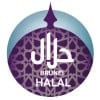‘Halal’ eateries grow in number, popularity
By Janell Ross
THE TENNESSEAN
Over the course of
a typical day inside Istanbul Restaurant and Cafe, American businessmen
of various faiths come in to get a gyro lunch.
There
are groups of Muslim men who come in to eat the Cornish hen platter,
the kofta, and American-born Muslim girls who come for the lentil soup
or the fresh honey-, ground nut- and butter-infused baklava. And there
may be Latin American mothers who stop by for takeout pollo asado, the
Mexican take on roast chicken. But whether they know it or not, when
they eat at Istanbul on Nolensville Road, they are all eating halal.
Halal
is the Islamic equivalent of the Jewish kosher, a set of rules about
how animals are to be slaughtered, meat and other foods are to be
processed, and food additives and ingredients can and cannot be
consumed.
In the
span of about seven years, halal eating has gained such a foothold in
Nashville that the city has its own halal food corridor, said several
Nashville store and restaurant owners offering halal goods.
“The
meat that we serve here, it’s halal, it has to be halal, we pay $20 to
$30 more a case for our meat. But that’s not such a problem. It makes
me feel better because I know that my food and my heart is clean,” said
Mamet Arslan, Istanbul’s owner, head cook and the driving force behind
what one customer said Monday is the best baklava in town. Arslan is
also a Kurd and a Muslim who immigrated to the United States in the
early 1990s by way of Turkey.
The
halal food corridor begins just south of Interstate 440, stretches down
Nolensville Road, over to Thompson Lane and Edmondson Pike and extends
to individual restaurants on Bell Road, Hillsboro and Charlotte pikes.
Even
though Nashville does not compare to major Muslim population centers
like Detroit or Los Angeles, the city is situated in the sort of
relatively farm-rich region one where halalfood is readily available.
And a dynamic and rapidly growing culinary approach — organic halal —
is beginning to emerge, said Shahed Amanullah, founder of Zabihah.com,
an Austin, Texas- and London-based Web site that allows users to review
and list eateries around the world offering halal foods.
It’s more than pork ban
What most people know about Islamic dietary restrictions begins and ends with the prohibition on pork.
But
for the nation’s estimated 2.3 million to 6.4 million Muslims, who
along with other people are concerned about the content of their diet
and the impact the production has on the environment, the pursuit of
halal food is a matter of health and faith, said Hajj Habib Ghanim Sr.,
president of the Washington, D.C.-based USA Halal Chamber of Commerce.
It
can also be a matter of good business. Consumers already spend an
estimated $10 billion worldwide and $300 million in the United States
on halal goods each year, Ghanim said.
When
Zabihah.com released its first Nashville list of halal eateries in
2002, only one restaurant, Istanbul, appeared. Arslan says there was
another establishment — a nearby market — offering halal meats at the
time. Now, there are 29 mostly small grocery stores, restaurants,
mosques and even a school, Amanullah said.
“Interestingly
enough, I don’t think that the people using our site are exclusively
Muslim,” Amanullah said. “We know that food is a great cultural
exchange medium. It’s the way that a lot of people feel comfortable
experiencing something that is not their own.
“In
Nashville, what you see is not so much a rapid growth in the number of
places listed, it’s people posting reviews of the same places that seem
to getting more positive over time.”
Given
the anonymity of the consumer-generated reviews on Zabihah.com, that’s
not likely because people want to be nice. The reviews are getting
better because the businesses are responding to what their customers
have had to say about them online, Amanullah said.
Right now, Istanbul has 4.3 out of five stars.



